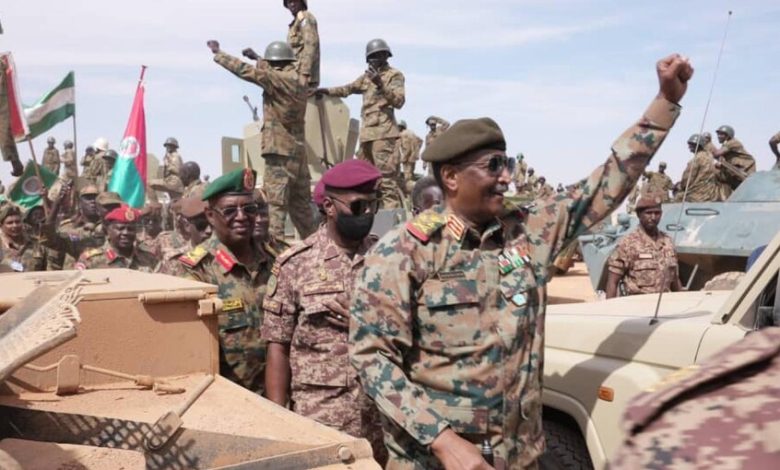Wad Madani: The City Exhausted by Struggle

By Tarek Osman
Wad Madani is still struggling to return to life after being liberated from the grip of the rebellious Rapid Support Forces (RSF). Life is slowly returning to its veins, but the city requires significant effort to recover. The rebels left destruction everywhere—its institutions, markets, and infrastructure have all been turned to rubble. It is difficult to find a single building or store untouched by the hand of sabotage. The state of the city mirrors the sentiment expressed in the famous Sudanese lyric, “What has exhausted the body is the struggle.”
Services on the Brink of Collapse
The majority of services in Wad Madani remain nearly paralyzed. There is no water, electricity, or transportation. The city streets, still marked by scenes of war, see minimal activity. The heavy presence of military and security forces reflects the ongoing efforts to secure the area.
In a visit to Wad Madani, Al-Sudani observed some of the city’s struggles after emerging from RSF control.
Water and Electricity: Efforts Underway
The city is suffering from a severe water shortage, as water stations were completely shut down by the rebels. Technical teams are working tirelessly to restore them. According to Murtada Al-Baily, the Secretary-General of the Gezira State Government, about 70% of the city’s neighborhoods now have access to water, with efforts underway to cover the remaining areas.
On the electricity front, there is significant damage to major power infrastructure, especially along the road between the Al-Hariz area—on the border between Gezira and Gedaref states—and Wad Madani. Al-Baily confirmed that the main power station in the city is repairable, with engineers and technicians working diligently to restore service. He noted that essential needs for repairs have been submitted to the federal government, including the oils required for transformers, which are en route to the state.
Transportation Crisis: Donkeys and Carts Take Over
One striking observation in Wad Madani is the near-total absence of transportation. The streets are devoid of vehicles, except for those used by military forces. The lack of fuel and widespread looting of vehicles have forced residents to rely on primitive methods of transportation, such as donkey-drawn carts. These carts have become the city’s primary means of transportation. Some residents resort to bicycles for limited movement, while even patients are transported to hospitals using carts after ambulances were looted.
War’s Aftermath: A City in Ruins
Destruction is visible everywhere in Wad Madani. Debris from the war litters the streets, and cars sit abandoned or reduced to skeletal remains after being looted or destroyed. Government institutions are particularly hard-hit, with doors, windows, and furniture either stolen or vandalized. Local authorities have begun cleaning efforts, but military officials confirmed that demining operations are still underway. Once those operations are complete, broader cleanup campaigns will begin.
Healthcare: A Fragile Recovery
Hospitals in Wad Madani are seeing a gradual increase in activity, though many facilities remain severely damaged. The city’s main hospital still lacks essential equipment to resume full services. The maternity hospital is operating under extremely difficult conditions, with stolen solar panels cutting off its electricity supply.
One doctor revealed that emergency surgeries are being conducted under sunlight through open windows due to the lack of power. The hospital is in urgent need of equipment and medications to function effectively.
Markets in Ruins
The markets of Wad Madani remain ghost towns. Stores have been looted, their doors smashed, and their shelves emptied. Many shops have been completely or partially destroyed. Even pharmacies were not spared; their glass doors were shattered, shelves toppled, and medications ruined.
Despite the immense destruction, the slow movement of residents through the streets breathes faint signs of life back into the city. Their resilience signals hope for reconstruction, even after the devastation wrought by the RSF on Sudan’s second-largest city.
Source: Al-Sudani



